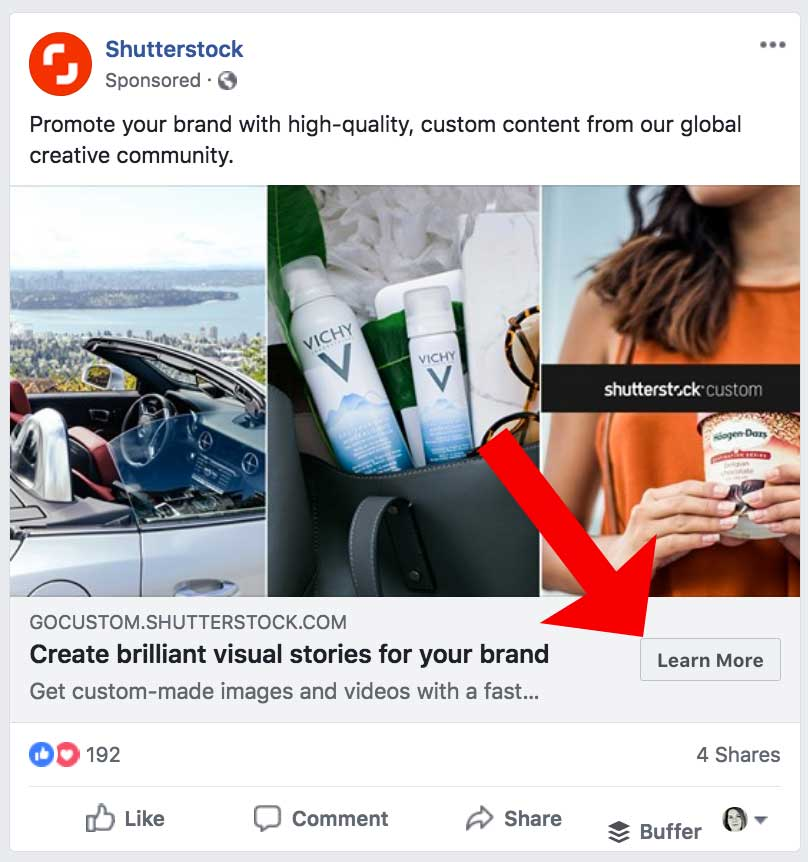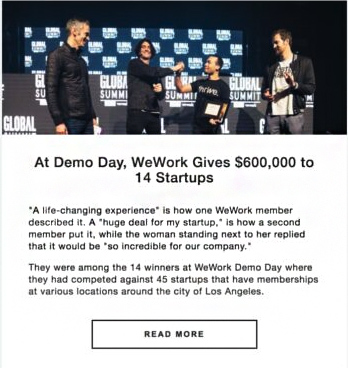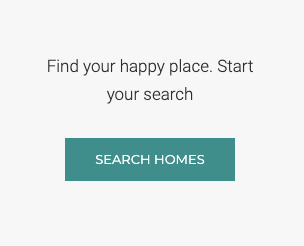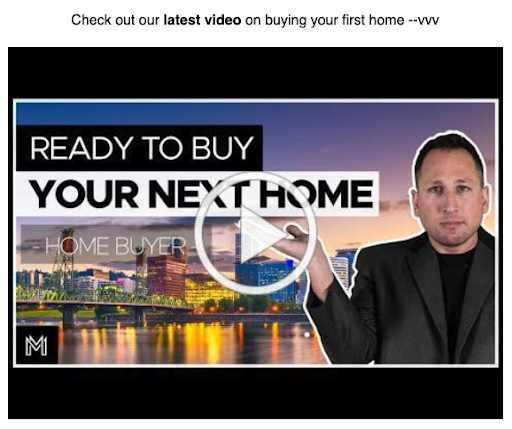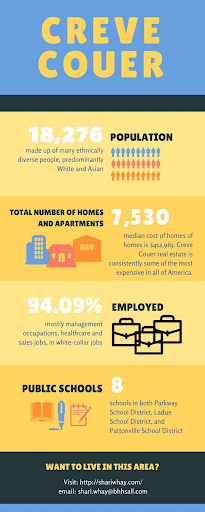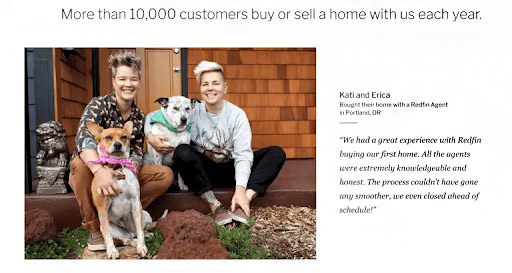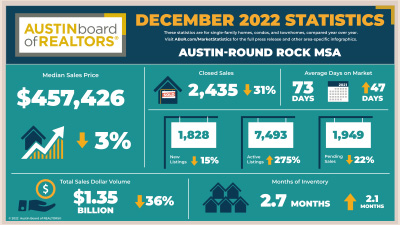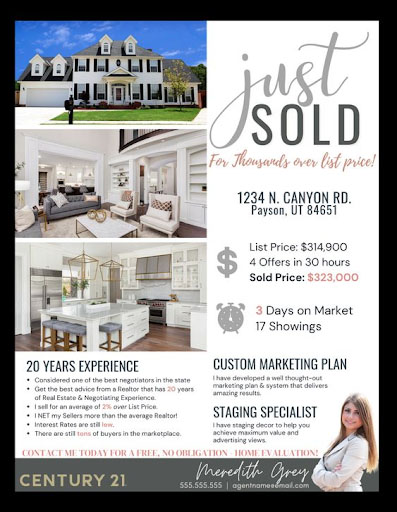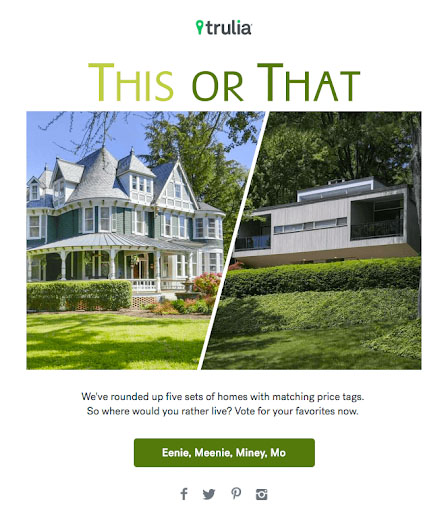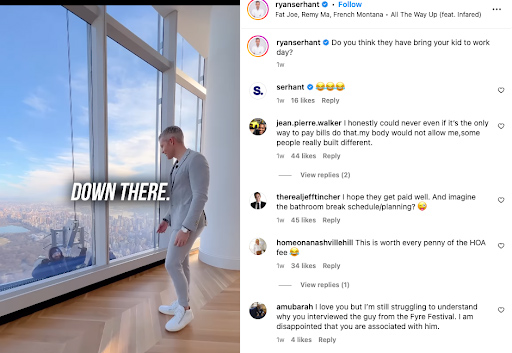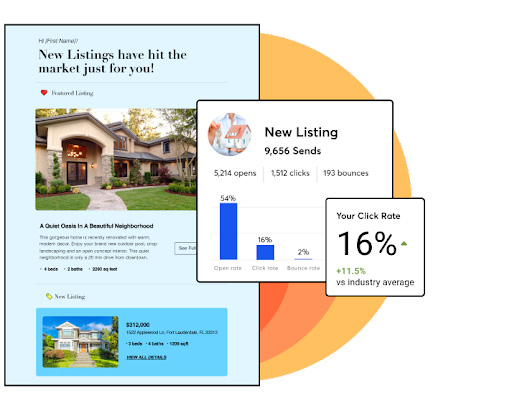Real estate email marketing is a well-known and effective way to connect with new leads and maintain relationships with current clients. However, many real estate professionals miss out on the benefits of email marketing by sending simple, generalized content to their entire email list. Using the right email marketing tools and strategies, agents can more effectively convert leads and build a loyal, engaged audience. To help you get started, here are nine of the most important email marketing tips for real estate agents:
1. Utilize Real Estate Email Marketing Tools
The first step to creating the best email marketing for a real estate business is finding the right platform to help you build professional email campaigns and boost your sales funnel. Prices for these tools vary depending on the services you’re using and the number of lead contacts you have, so research the best email marketing software and consider the features most important to you.
Here’s a comparison of some of the best email marketing software:
Providers |  | |||
|---|---|---|---|---|
Best For | All-in-one solutions for sales and marketing | Email marketing for real estate ecommerce businesses | Cheapest email marketing software | Artificial intelligence (AI) email writing assistance |
Key Features |
|
|
|
|
Starting Price | Free | Free | Free | Free |
Learn More | ||||
Our Review |
2. Establish a Consistent Email Schedule
Real estate email marketing requires a different approach than personal emails. Email campaigns should be created in advance for leads at every sales cycle stage. Successful real estate agents start by setting up a “welcome sequence,” automatically sent when a new lead subscribes to their newsletter or opts in for an incentive.
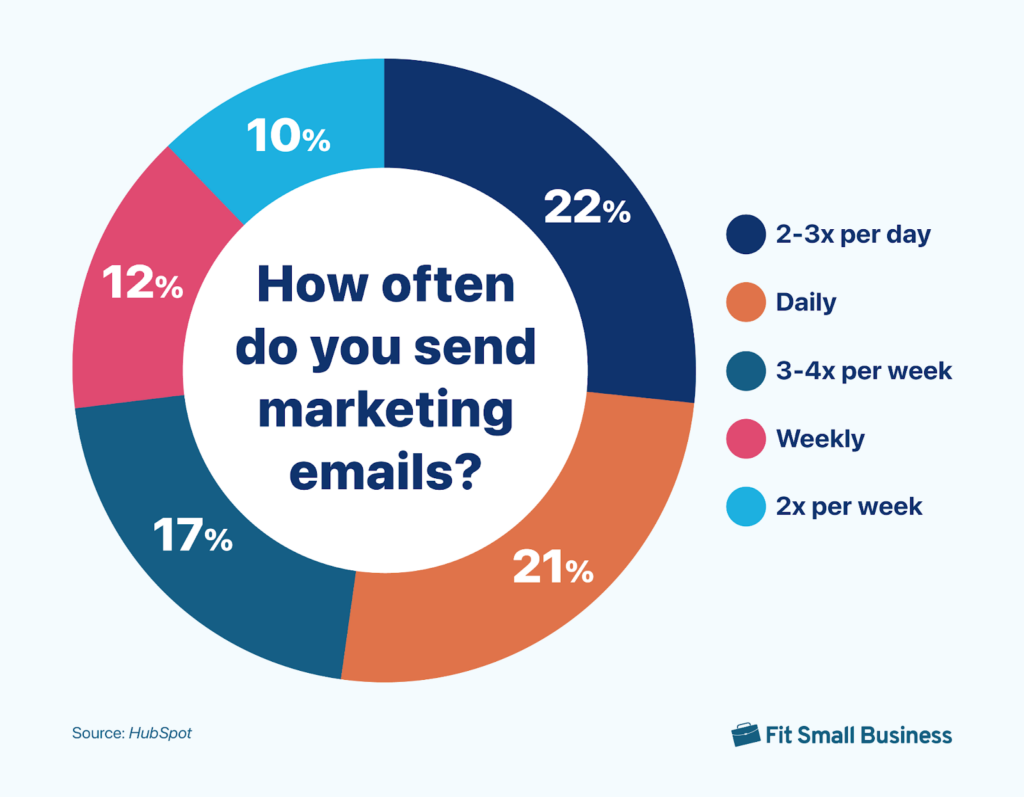
A “welcome sequence” can be any number of emails sent in regular intervals, but typically consists of more emails than usually sent in a short period, like one email per day for four or five days. This automated sequence prevents you from scrambling to reach out to new contacts at all hours of the day. Plus, welcome emails have an open rate of 55.61% across all industries, four times the click rate and 23 times the average conversion rate of all other marketing emails.
Beyond your welcome email or sequence, determine what email frequency your audience prefers. No formula can calculate exactly what works best for your unique email list, but most of your contacts will not want to receive a new email every single day. Since every real estate agent’s audience is different, you’ll have to use trial and error to determine what gets the highest engagement from your audience.
Pro tip: Download our free real estate email marketing ideas and templates to start crafting emails that engage your audience.
3. Keep Email Marketing Campaigns Relevant With Segmentation
One of the most critical elements of a successful email marketing strategy is customizing your emails for every type of reader you have. In the world of email marketing for real estate, this is called segmentation. Segmenting your email list means dividing it into groups, like potential buyers vs potential sellers. This allows you to continually create relevant emails for every person on your contact list.
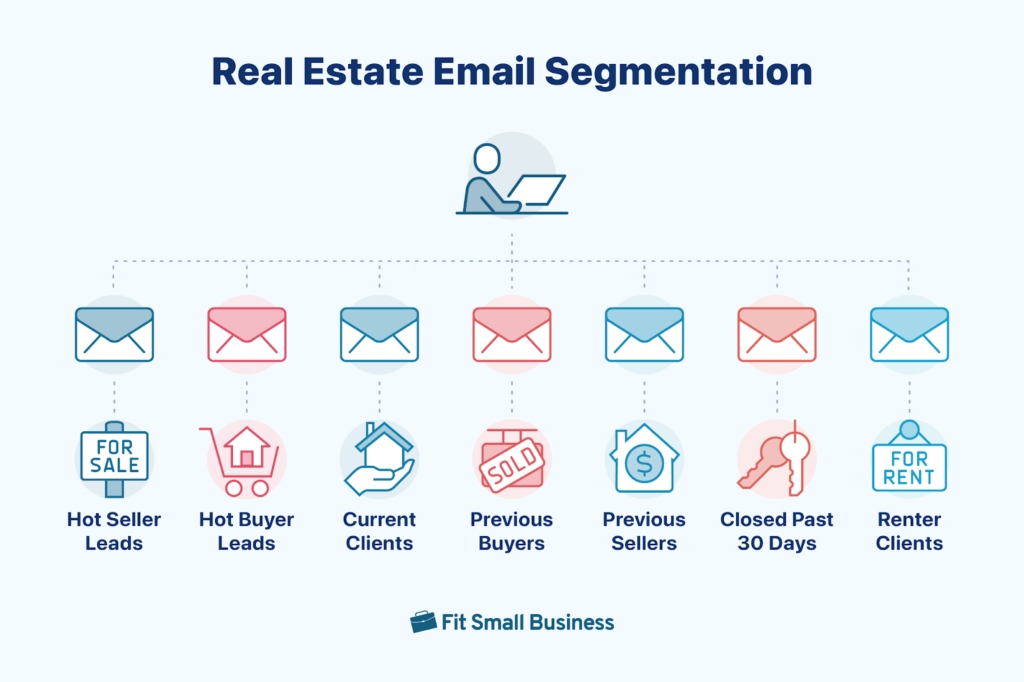
Here are some ideas of the type of email content that would best fit different segmentations:
- Hot seller leads: Examples of homes you have sold above the asking price or in unique circumstances
- Hot buyer leads: New listings that fit their wishlist, plus examples of high-competition homes you helped past clients purchase
- Current clients: Market updates, new listings
- Previous buyers: Seasonal home maintenance tips
- Recently closed clients: Check in on questions about their mortgage, neighborhood, or home maintenance
4. Use a Variety of Email Campaigns
Another way to keep emails engaging and relevant to every contact is by using different types of email campaigns. For example, you can send market reports, birthday and anniversary celebrations, specific follow-ups, and various email types so your emails will stay interesting and engaging to your leads. The main types of realtor email marketing campaigns include the following:
These are automated email sequences often triggered by user behavior, such as visiting your website, searching your listings, or clicking a blog post link. Drip campaigns are the most common campaign type because they are fully automated and highly relevant. To learn how to create your own drip campaigns, see our article on How to Create Successful Real Estate Drip Campaigns.
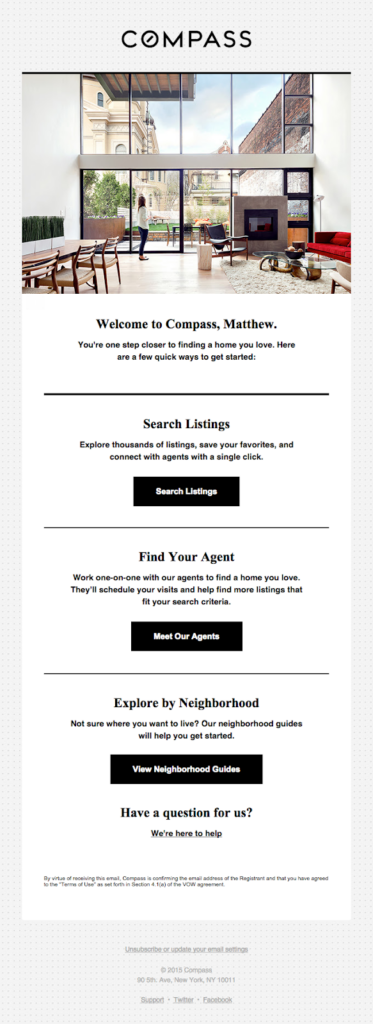
Example of real estate email drip campaign (Source: automizy)
Targeted email campaigns are highly specific to a subset of your leads. This helps you send extremely relevant and personalized campaigns that maximize conversions. Send targeted campaigns to leads segmented by niches or lead generation sources.
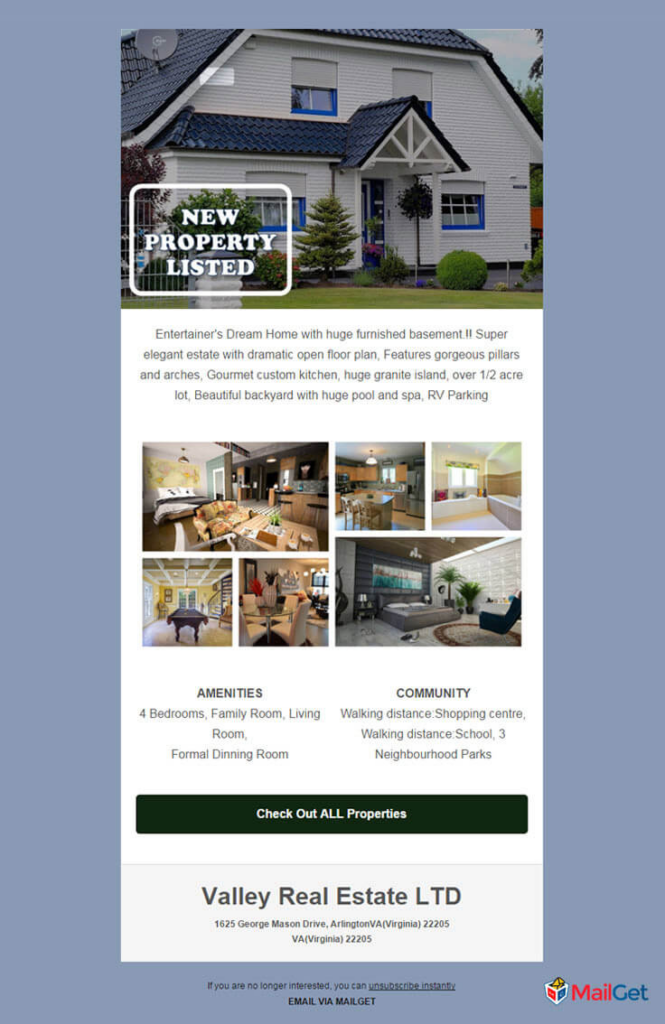
Targeted real estate email campaign sample (Source: Email Uplers)
After hosting an open house or real estate event, use the opportunity to connect further with each attendee by sending a follow-up email. You can easily automate these emails, but make sure to write them carefully so recipients feel that you are personally connecting. Start by using our open house follow-up email templates.
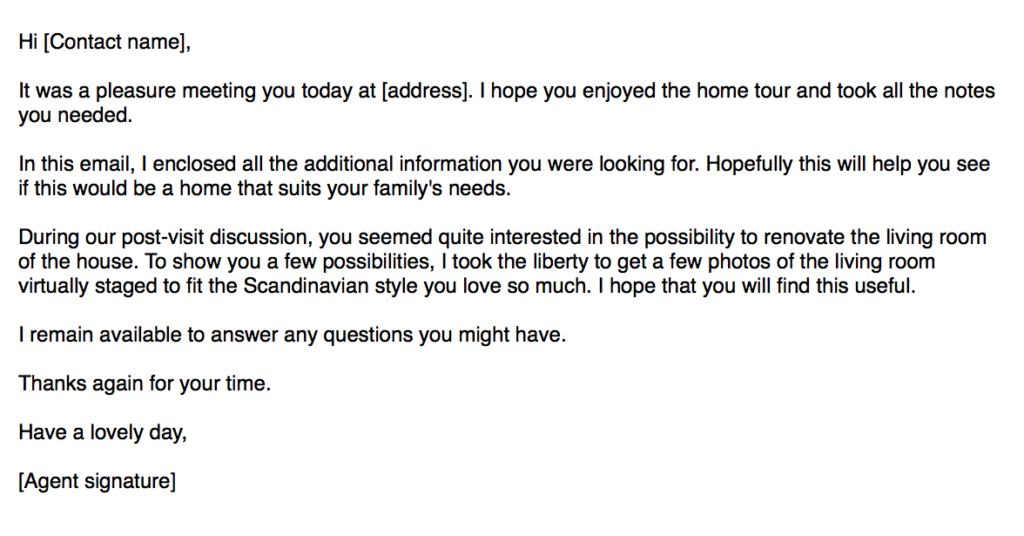
Example of a real estate follow-up email (Source: leadsbridge)
Your previous clients are the most likely sources of referrals and repeat business, so remember to keep in touch. Continue communicating with them via email and regularly ask for testimonials or new referrals.
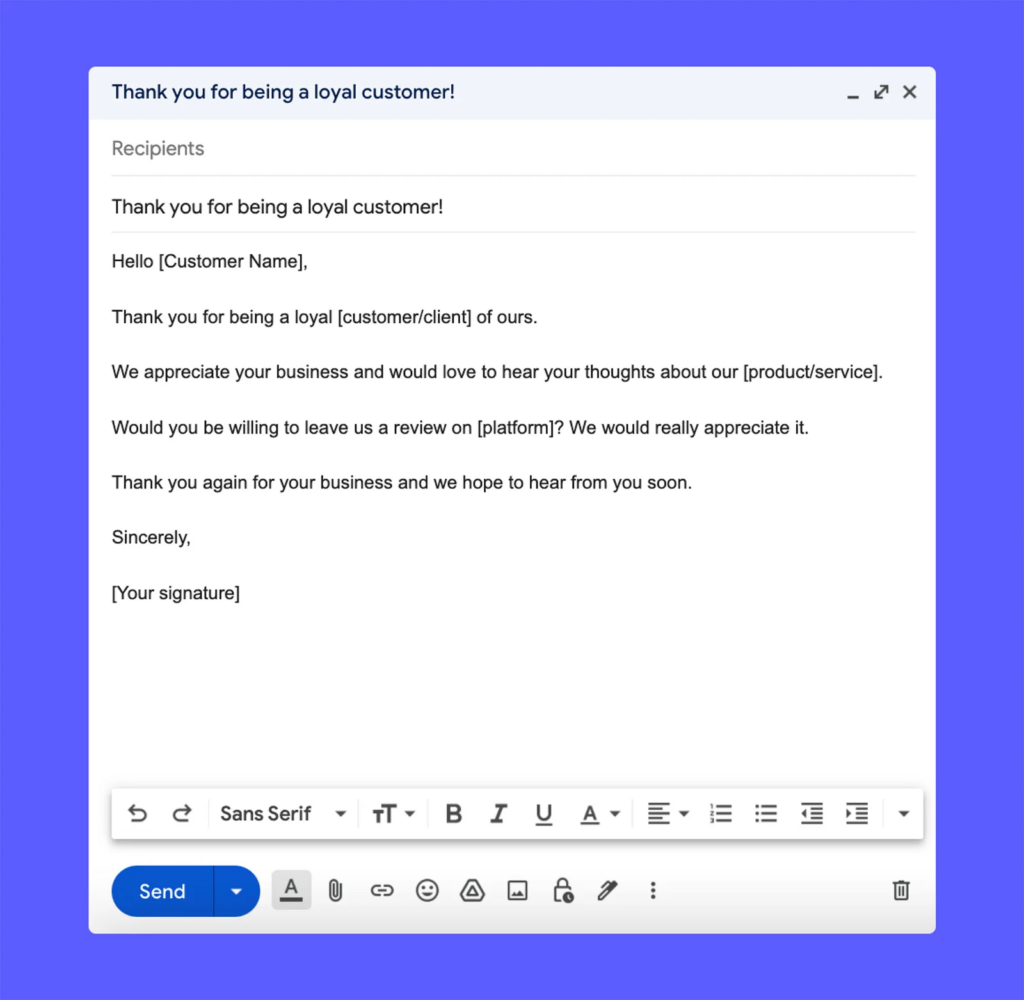
Example of a real estate testimonial request email (Source: testimonial.to)
Add each client’s birthday and anniversary to your CRM and email management platform. Create an event campaign to automatically email each lead and check in with them on their special day. This can help them feel remembered, thus building a connection.
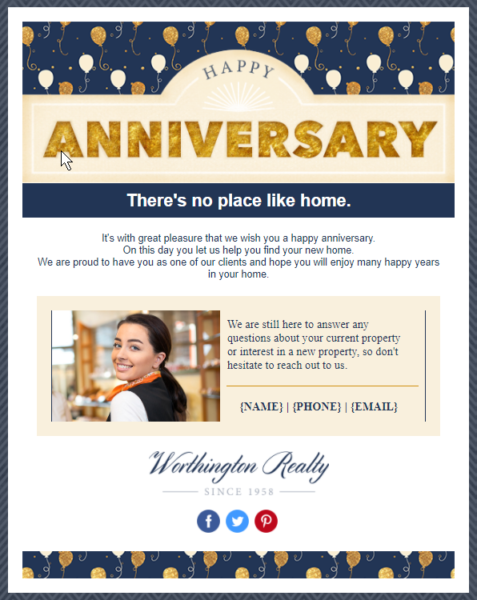
Anniversary email marketing campaign example (Source: Constant Contact)
Unlike other campaign types, re-engagement emails are sent to people who did not voluntarily join your email list and may not have heard of you before. This includes sending introductory emails to new buyer leads, for sale by owner (FSBO) leads, or expired listing leads. Re-engagement email marketing can be an effective real estate lead generation strategy, but make sure to read your state’s spam laws before sending cold emails.
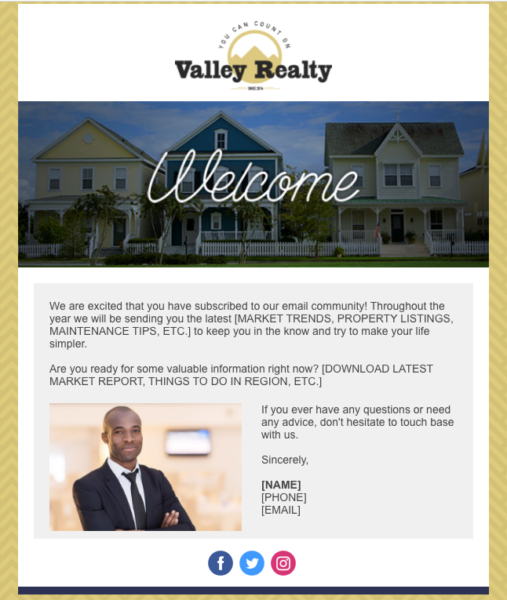
Example of an introductory email campaign (Source: Constant Contact)
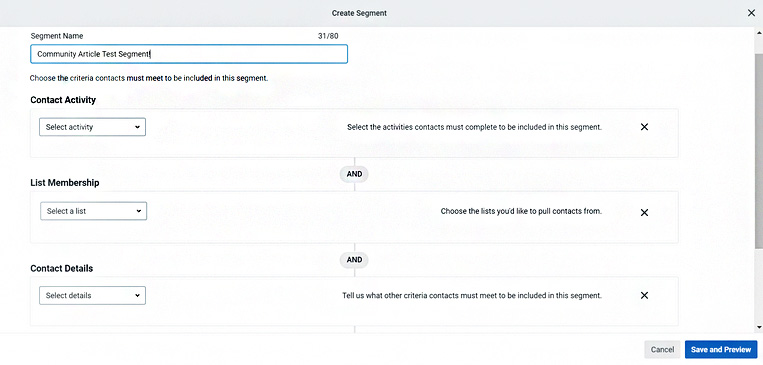
Segmentation tools in Constant Contact (Source: Constant Contact)
According to research from HubSpot, segmenting is the single most effective email marketing strategy. Constant Contact offers an automation feature to help you pull first-sale or birthday dates from your online forms or your customer relationship manager (CRM) along with a predesigned template. In addition, its drag-and-drop email builder makes it easy to create and schedule emails of all types with personalized greetings and special offers for each contact automatically. Start using Constant Contact for free today.
5. Present a Call to Action
Even when your email’s primary purpose is not to make a sale, a call to action (CTA) invites readers to take action and further engage with you. Keep the CTA relevant to your email and easy for your lead to do—like clicking a button or sending a quick message.
For example, this sample Zillow email provides multiple calls to action for both homeowners and homebuyers. It targets people getting ready to purchase with “See What You Can Afford” and potential sellers with “What’s That Home Worth?” The formatting of these calls to action makes it extremely easy and appealing for house hunters, homeowners, and potential homebuyers to learn more about specific questions they most likely already have.
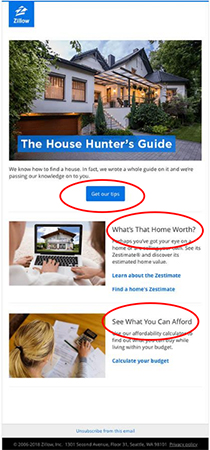
Example of real estate email CTAs from Zillow (Source: HomeSpotter)
Here are a few other examples of what CTAs would look like:
6. Create a Variety of Engaging Content
When creating content for your business, focus on your audience’s needs and interests instead of your own. The best way to do this is to develop various content instead of sticking only to market reports or new listings. Feel free to inject your unique personality into your emails. Spice up your newsletter with fun local events, funny real estate memes, and reviews of new local restaurants to build genuine connections and find common interests.
Click through the images below to see examples of email real estate marketing idea topics and email types that you could send, including the following:
- Infographics
- Home improvement or maintenance tips
- Neighborhood spotlights
- Reviews and stories from previous clients
- Market data
- Recent sales information
- New listings
- Open house invites
- A fun house-related survey question
- Mortgage news and advice or interesting local market information
An easy way to engage your audience is by creating unique, eye-catching, branded graphics with Canva. Canva is a graphic design tool with thousands of templates for infographics, reports, social media, emails, and everything in between. Even if you don’t have graphic design experience, the templates and customization options will make it easy. Plus, Canva is free to use.
Pro tip: Select email templates that are branded the same way as your other real estate marketing materials. This helps build brand recognition across multiple marketing channels, including emails, social media, and direct mail.
7. Include Testimonials
Since email marketing’s primary goal is to build your business, regularly including client testimonials is an ideal way to build trust. In 2024, 91% of consumers said local branch reviews impact their overall perceptions of big brands. By including reviews in emails that are already unique and engaging, you will build a strong foundation of trust and familiarity.
As you grow your business along with your real estate broker email list, ask clients to leave testimonials in a specific location. Since online reviews carry so much weight, consumers view reviews on particular platforms differently. Recent research shows that 81% of consumers used and trusted the reviews on Google over every other review platform.
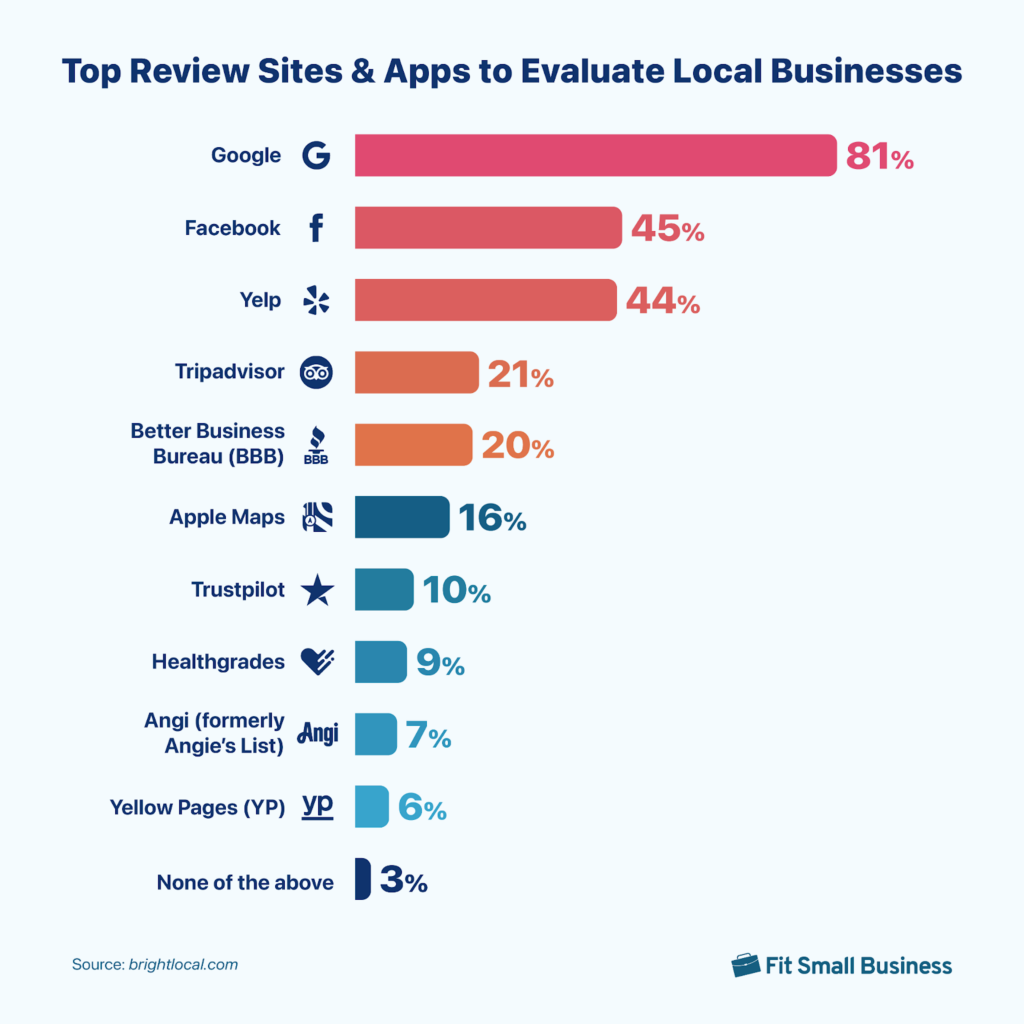
This is especially important in real estate since Google uses local service ads to promote real estate agent profiles. Optimize your Google Business Profile and ask all clients to write reviews on it. Then, share reviews directly from Google in emails to further prove your authority and trustworthiness to leads.
Pro tip: Are you considering leveraging Google to generate leads and build brand recognition? Start by reading our guide to Google ads for real estate.
8. Be Authentic
Remember that the most important part of email marketing for real estate is connecting with your contacts. Sharing natural, unpolished content about yourself, your family, or part of your job will help build a connection.
For example, Ryan Serhant seamlessly posts pictures of his family, selfies with his kids, professional presentations, interviews, and property tours. His marketing strategy shows that not every email or social media post needs to be extraordinarily long and strategic.
9. Combine Emails With Additional Marketing Channels
Leveraging emails along with other marketing channels will expand your reach and impact. Luckily, email marketing in real estate works exceptionally well with a few other key marketing channels, such as:
- Real estate text message marketing: SMS marketing is incredibly effective for getting your name and message in front of your contacts’ eyes. However, you can only send a small number of characters through text, which naturally complements email marketing.
- Social media marketing: Like email, social media requires consistency for the best results. A strong real estate social media marketing strategy can provide plenty of content that can be easily repurposed in emails.
- Content marketing: One of the best ways to build your email list is to publish compelling content on your real estate website. Then, you can offer something appealing to potential leads in exchange for their email address, like a home valuation, real estate meeting, or market report.
Real Estate Email Marketing Statistics
Many agents view email marketing as a low priority on their overflowing to-do list. However, email marketing statistics prove that email is still one of the most effective channels for nurturing clients and ultimately generating revenue. Ensure you’re aware of recent email marketing data to prioritize email marketing within your sales funnel accurately.
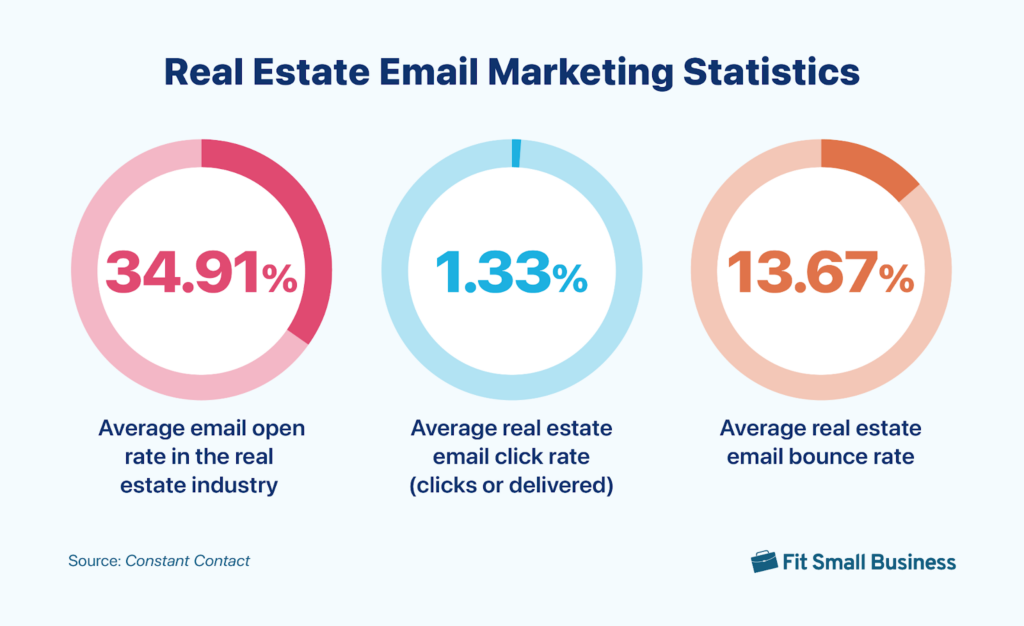
Here are a few key email marketing statistics for real estate agents:
- The average email open rate in the real estate industry is 34.91%.
- The average real estate email click rate (clicks or delivered) is 1.33%.
- The average real estate email bounce rate is 13.67%.
- Email generated 174% more total conversions than social media.
- According to Litmus, email marketing’s return on investment (ROI) is 3,600%—meaning it brings in $36 for every dollar spent.
- Image-based emails have a higher open rate of 30.27% compared to text-based emails, with an open rate of 21.9%.
- Including videos in your email can increase the click-through rates by 65%.
- Around 53% of consumers claim they like emails mentioning birthdays or anniversaries.
- 83% of consumers stated that they prefer to receive hyper-personalized marketing messages
These statistics show that sending emails doesn’t automatically grow your business. However, developing a strong email marketing strategy helps you generate more leads and build a loyal audience.
Real Estate Email Marketing ‘Don’ts’ (+ Tips & Tools to Help Avoid)
Email marketing is an extremely effective marketing channel for thousands of real estate agents and brokers, and it’s relatively simple to start. However, a few mistakes can prevent you from getting the best results. Now that you know how powerful email marketing can be, here are four of the biggest realtor email marketing mistakes to avoid and follow these real estate email marketing strategies and tips:
Frequently Asked Questions (FAQs)
The benefits of email marketing for realtors are as follows:
- It is a cost-effective alternative to other marketing strategies like Facebook paid ads.
- It is an excellent way to showcase your brand offline and bring it to life outside digital channels.
- It is the best strategy to reach out to your local real estate market.
- It can reach a diverse target market, making it a clever way to promote your advertising channels.
Definitely. Email marketing is the simplest method for managing all your leads, regardless of their origin or the stage of the buying or selling process they are in. It enables you to nurture all your leads, which in turn helps you convert more of them and keep your pipeline filled with potential buyers and sellers.
To write an effective real estate marketing email, it is recommended to begin with email templates. These templates are user-friendly and intuitive, making the process less daunting. After selecting a template, personalize it to reflect your own voice and style. In addition, you can utilize the drip campaign templates that are already available in your CRM. To make the process even easier, we suggest downloading our 11 Ready-to-Use Real Estate Email Marketing Examples & Templates.
Bottom Line
Out of all the potential real estate marketing ideas available to grow your business, email is one of the best, most efficient, and most effective strategies. It’s uniquely suited to nurturing potential clients on a personal level and increasing brand awareness in tandem with other tactics.
By intentionally creating topic-specific campaigns, you’ll have a greater chance of securing clients and increasing sales and commissions. Given the success of email campaigns, all real estate agents and brokerages should consider including them in their marketing strategy.
